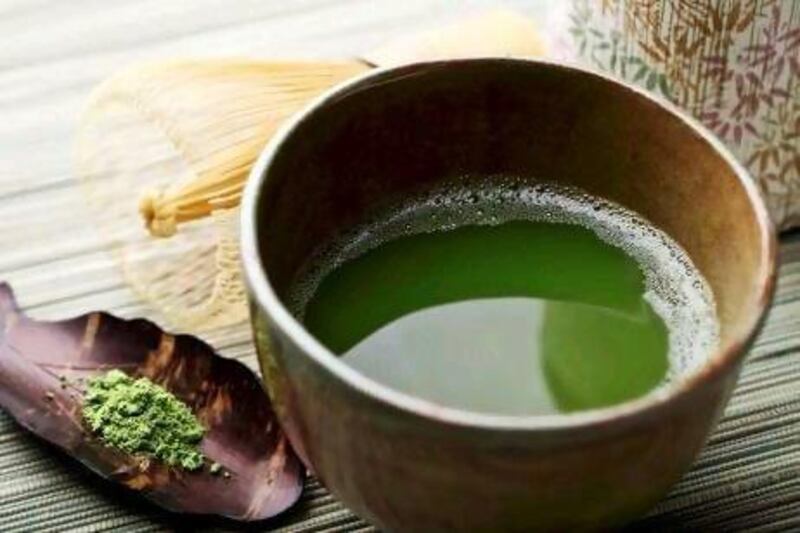Foodies love to predict what's going to be "big" and 2012 was forecast to be the year of gourmet doughnuts, Scotch eggs and cakes on a stick, also known as cake pops. However, as the months have passed, some more unusual foods have gained popularity and it's not because of their effect on the taste buds, but rather because they pack a nutritional punch. Here's what to pop in your trolley if you want to join the superfood bandwagon.
Parsley tea
What: parsley tea is made with fresh or dried leaves. Flat-leaf parsley or curly parsley can be used.
How: for fresh tea, simply pour some boiling water over two tablespoons of chopped leaves. Let the tea sit for five to 10 minutes before drinking. It's OK to drink the herbs.
Why: parsley is best known as a garnish, but whether you use it dried or fresh, it's a nutritional powerhouse. "Parsley tea is thought to be a good source of vitamin C and iron as well as containing antioxidant values," explains Stephanie Karl, a nutritionist at XY Clinics in Dubai (www.xyclinics.com) Rich in minerals and vitamins A, C and K, parsley tea is thought to be useful in balancing hormones, fighting anaemia and boosting the immune system. Parsley contains more vitamin C than most citrus plants and almost three times more than your average orange. "Overdoing any supplement will have an effect on other minerals in the body, so always be aware of other symptoms that may arise," warns Karl.
GLA supplements
What: gamma linolenic acid, or GLA, is one of the essential omega 6 fatty acids and is found in evening primrose oil, borage oil and blackcurrant oil. "It is essential for our health but our body is unable to produce it, so it's very important that we eat it," explains Laura Holland, a nutrition and well-being consultant at BeUtiful You in Dubai (www.BeutifulYou.co.uk) and The National's Food For Thought contributor.
How: GLA supplements are available in pharmacies, health food shops and online.
Why: according to the American Cancer Society, some studies show that GLA is effective in slowing or stopping the growth of some types of cancer cells. "GLA has emerging science to support its place as an anti-inflammatory and therefore may improve arthritic conditions, PMS, hypertension and skin disorders," says Karl. "However, research still isn't strong and I would not recommend this supplement over other essential fatty acids, which are available through natural food sources."
Maqui berries
What: maqui berries have been known to the indigenous people of South America for hundreds of years, but we have only just begun to understand the richness of this superfood.
How: The berries can be bought in a powder form and added to smoothies, or you can take them as a supplement.
Why: "Maqui berries have incredibly high levels of free radical fighting antioxidants, even higher than the acai berry, which is also known as a great superfood," explains Holland. "Research suggests powerful anti-inflammatory and anti-ageing properties, as the berries improve the health of the cardiovascular system." Maqui berries are also thought to help combat fatigue, providing the body with an amazing array of nutrients in a highly absorbable form. "From this perspective, maqui could also be very helpful for weight loss and cellulite reduction, given the richness of its antioxidants and enzyme activity," says Holland.
Matcha green tea
What: matcha, in Japanese, literally means fine powder tea, although it's not just a powdered version of regular green tea. The leaves used for matcha are of the finest grade and come from plants especially grown in the shade.
How: traditionally, matcha is whisked into hot water to make a smooth green tea, which is how you would drink it if you went to a Japanese tea ceremony. Because matcha comes in a powder form, you can use it to make lattés, smoothies, ice cream and cookies.
Why: "Once dried, these leaves are finely milled, giving the maximum benefits green tea is capable of providing since it is made with the whole herb," explains Holland. In 2003, researchers from the University of Colorado found that matcha contains, incredibly, 137 times the antioxidants of regular green tea. Matcha is said to boost the metabolism and help reduce cholesterol levels and stress levels when consumed regularly. "It contains as much caffeine as half a cup of black coffee, so anyone sensitive to caffeine should limit their consumption as this could certainly begin to outweigh the health benefits," adds Holland.
Pure green coffee bean extract
What: green coffee beans are literally fresh coffee beans that have not been roasted and contain a compound called chlorogenic acid.
How: the extract can be consumed through supplements, which can be purchased over the internet or by mail order.
Why: "The extract has been reported to be beneficial for weight loss, especially when combined with caffeine," explains Holland. A controlled green coffee bean extract study (published in the Diabetes, Metabolic Syndrome and Obesity Journal) found that every participant experienced an average of one pound weight-loss a week. "I am not overly convinced of its benefits and think it might cause some stomach irritation, as coffee can cause an acidic environment. It can also trigger insulin, which may not be beneficial to systemic inflammation," warns Karl.






